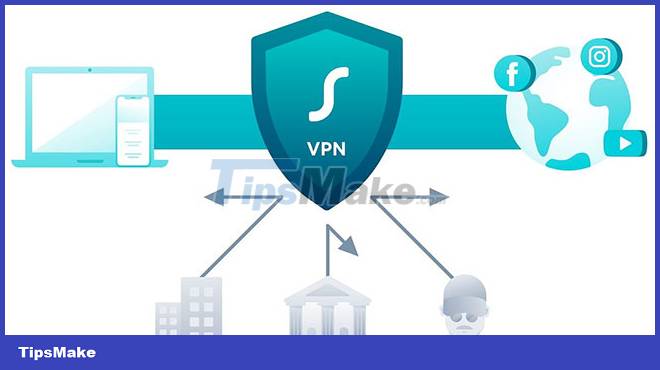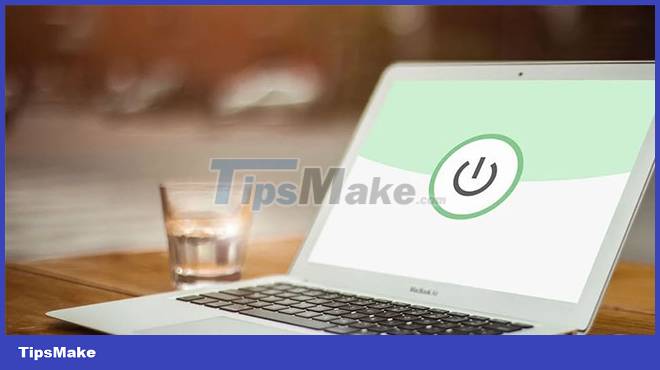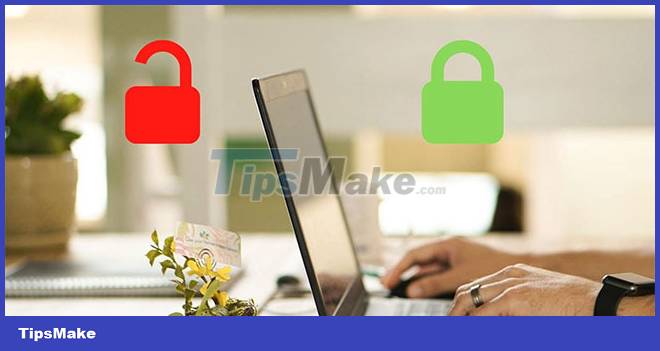Free VPN: Is There More?
Virtual private networks (VPNs) can provide you with a high level of security and privacy online, but the most reputable and well-known providers out there require you to pay a large sum of money to use them. service. This is why so many people choose free VPNs, but these VPNs can also be risky. So, if you're not willing to pay for a VPN, should you try a free provider or avoid VPN altogether?
VPN for what?

The reason why most people use VPNs is to encrypt their Internet traffic and IP addresses, which means ISPs, governments and other parties cannot know where they are or what they are doing online. . This is done using remote servers in multiple locations around the world.
Additionally, VPNs are useful because they can bypass geo-blocking, a technology that restricts content in certain locations for legal reasons. By using a remote server, you can trick your ISP into thinking you're in another country, allowing you to access content that isn't available in your country.
But VPNs aren't cheap to be exact. Most reputable VPN services cost up to $10/month, and while these prices can drop as you commit to a longer subscription period, a lot of people simply don't want to tie themselves up. with anything for a long time. This is why free VPNs are so popular. But are they really that good at protecting you online?
Are free VPNs safe?

Before diving into the safety factor surrounding free VPNs, it's important to note that every VPN is different, so there's no yes or no answer that covers all free VPN providers. here. However, free VPNs are certainly risky.
First, VPN companies are just business people. This means they need to make a profit in one way or another. But how can they do this without a subscription fee? This is where logs and advertisements come into play.
VPN log is a database containing information about VPN users. Different VPN logs track different things, but online activity, connected devices, and IP addresses are some of the most commonly tracked data types in this case. Certain VPN providers do this to sell information to third parties, which is how they can make a profit without charging users.
Of course, this completely defeats the point of a VPN as it does not allow for complete obfuscation of the user's data and IP addresses.
There is no way to determine if a VPN provider is keeping no logs inside their system, while well-known paid providers like ExpressVPN and SurfShark guarantee with customers that they keep no logs at all (although some paid VPNs may). Such providers have a no-logs policy, although this does not fully confirm that logs are not kept. However, when it comes to free VPNs, things get a lot worse.
If you use a free VPN provider and are concerned about how your data is being handled, you can learn more by looking at the privacy policy of your chosen provider. Some openly admit that they track or sell data, so doing a little research can confirm whether your provider is selling your data elsewhere.
Free VPN providers also display ads for money, but this doesn't really pose a security or privacy risk to the user.
But if free VPNs pose such risks and you don't want to pay for a better-known service, shouldn't you bother using a VPN anymore? Let's see if this is true.
Should you use a free VPN or stop using it?

This all depends on the free VPN provider you are using. There are a number of free VPNs that can boost your online security without any nasty issues, but the free VPN market is rife with illegal providers that can handle your personal information. your personal information in a misleading way and does not guarantee your safety.
When you're not using a VPN, your ISP and other third parties can see what you're doing online. Now, if you don't care about other people seeing your online activity, you don't need to worry about this. However, not using a VPN can also increase the chances of a hack or a breach of personal data, especially when using public WiFi.
On the other hand, if you're not too worried about additional online security and you just want to bypass geoblocking, a free VPN might be a good idea, but the article recommends doing some research. Research any potential suppliers to ensure that they are not engaging in any kind of illegal or unethical activity. There are also other ways you can avoid geoblocking (for example, by using the Tor browser), so you don't need to use a VPN for this purpose.
Also, free VPNs can really affect your connection speed. Unfortunately, almost every VPN provider out there can negatively affect your Internet speed, but the lackluster features of many free providers can make the effect even worse. . As a result, you may experience long cache and load times if you decide to go with a free VPN.
So, in general, using a free VPN can be beneficial if you make sure that the provider is legit. ProtonVPN Free, Hide.me, and Windscribe are all examples of reliable free VPN providers, but it's still important to note that they may not offer the same level of security or connection speed. as major suppliers.
When it comes to VPNs, it seems that forking out a small amount of money in exchange for good features and a higher level of security is worth it.
While some free VPN providers are completely legit and trustworthy, this is simply not true. Many free VPN companies can mishandle or expose your data, so it's important that you dig a little to determine how a certain provider actually works before signing up for a service. their service.
You should read it
- ★ Find unlimited free Wi-Fi hotspots in almost anywhere
- ★ Download the $ 350 free software package from WonderFox
- ★ Why should I stop using VPN for free immediately?
- ★ Invite to download the application set to create a VPN connection worth over VND 2.5 million from The VPN Company, which is free
- ★ Linh Download Free PDF Reader 2